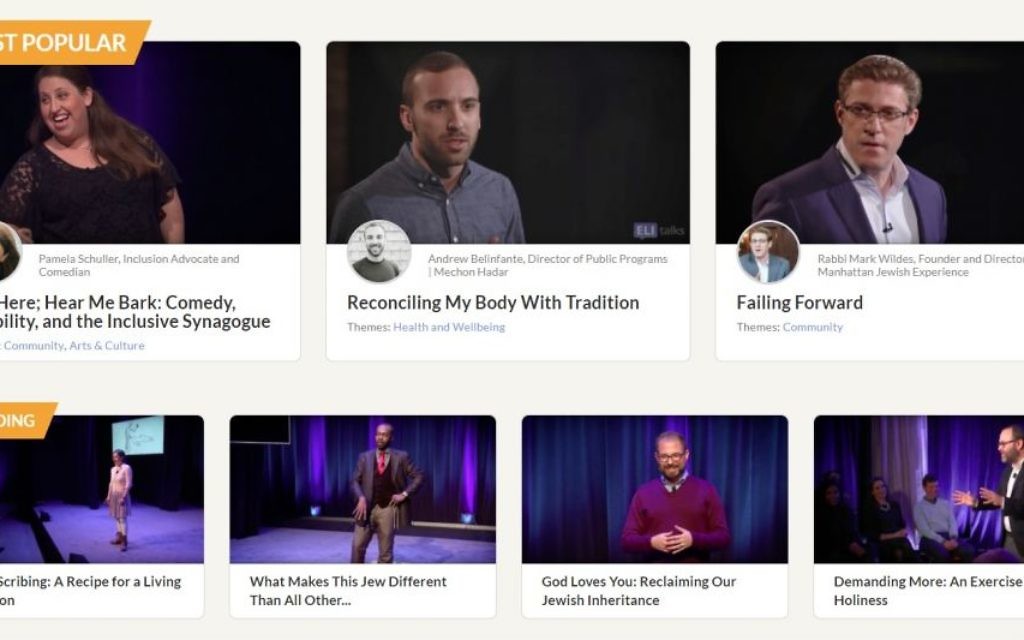ELI and the Time for Deep Thoughts
Five Jewish speakers tackle issues of identity, inclusion and continuity.
If Judaism is a series of conversations — among us, between us and G-d, between us and the rest of the world — it’s hard to think of many things more Jewish than ELI Talks.
That’s one of many things I learned when the production crew for the Jewish talks addressing engagement, literacy and identity (thus, ELI) came to Atlanta for three days of filming inside the Breman Museum’s “The Legacy of the Hebrew Orphans’ Home” exhibit.
If you’ve ever seen a TED Talk, you know the basic concept: Someone stands up in front of an audience and speaks about some topic on which he or she is an expert. Emory’s Deborah Lipstadt, for example, has received more than 900,000 views for her talk on Holocaust denial.
Get The AJT Newsletter by email and never miss our top stories Free Sign Up
I caught the final night of taping, which meant that I missed some locals, including Etgar 36’s Billy Planer and Chabad Intown’s Dena Schusterman. None of the five speakers the last night lives in Atlanta, although one, Bradley Caro Cook, grew up here before moving to Los Angeles.
Before even thinking about the content, I was blown away by the speakers’ ability to stand still for 15 minutes while talking. Some people think with their hands; I think with my feet, which is just one of many reasons you’ll never find me at elitalks.org.
The speakers spend months refining their presentations after the ELI Talks organization accepts their applications, and the five I heard — Cook, Sharon Weiss-Greenberg, Susan Horowitz, Lauren Tuchman and Jhos Singer — praised the process for sharpening their thinking.
That’s understandable because they were not addressing small issues.
Weiss-Greenberg searched for an authentic Orthodox Judaism that could prevent the familiar final scene from “The Last American Jew.”
Horowitz spoke about doing something of value with your life and not living just for your job.
Cook, a direct descendant of Shulchan Aruch compiler Rabbi Joseph Karo, guided us on his path from longing for pepperoni pizza to loving the beauty of halacha.
Tuchman, who is in her last year of rabbinical studies at the Jewish Theological Seminary, made the case for a dramatic reassessment of inclusion in the Jewish community so that “we are all the us, and there is no them.” (She happens to be blind.)
Singer, the final speaker, was devastating as he led us on his personal journey to himself (lech lecha) from the dress-hating girl he once was.
“Never doubt that you were created in the image of G-d,” he said, offering his own summary of the Torah. “Go to yourself. The rest is commentary.”
The talks taped at the Breman will be posted on that site around the beginning of November after going through post-production, which means about three hours of your time, broken down into 12-minute segments or watched in one marathon, will give you plenty of Jewish material to keep you thinking and perhaps starting your own conversations for weeks if not months to come.
The main Jewish element lacking from the ELI Talk is the arguing. After all, the speaker has limited time, and the audience members are props and backdrop, not debating foils.
But the beauty of the recorded talks is that like the Talmud, they are preserved for all time, and the conversations in response can go on forever. Even if you’re just talking to yourself.





comments